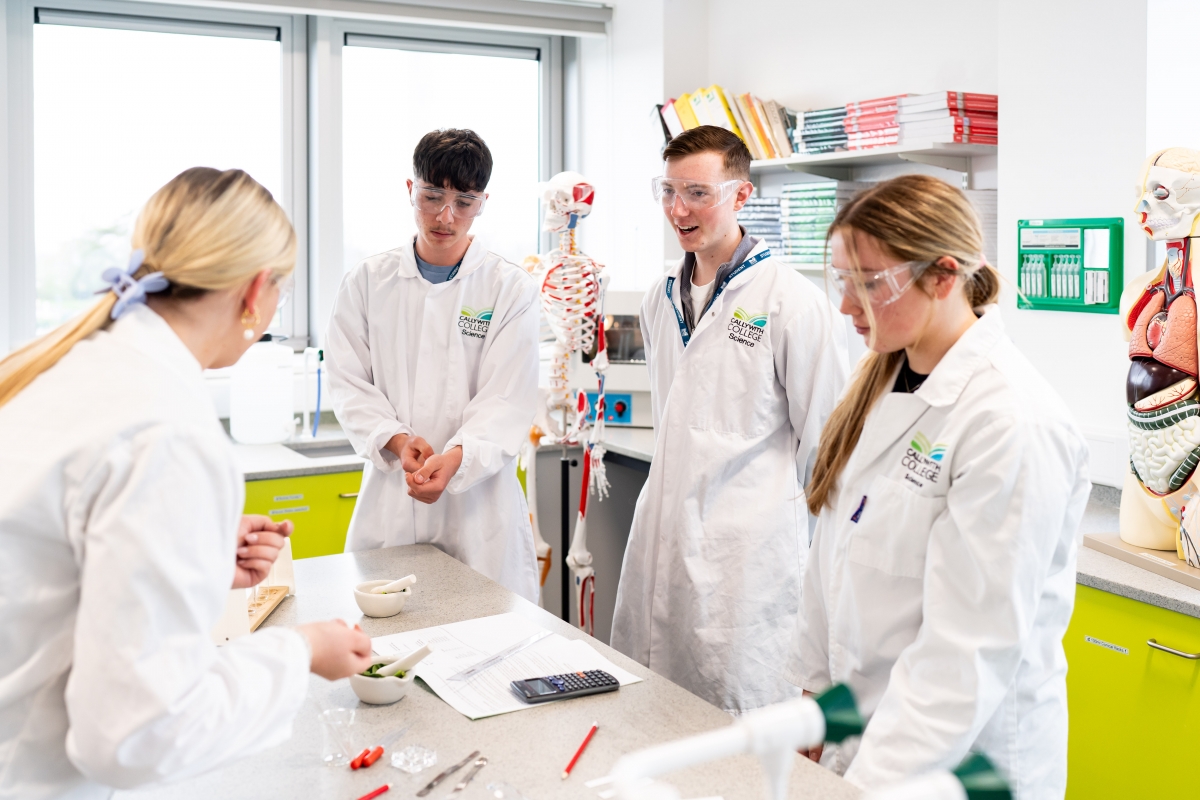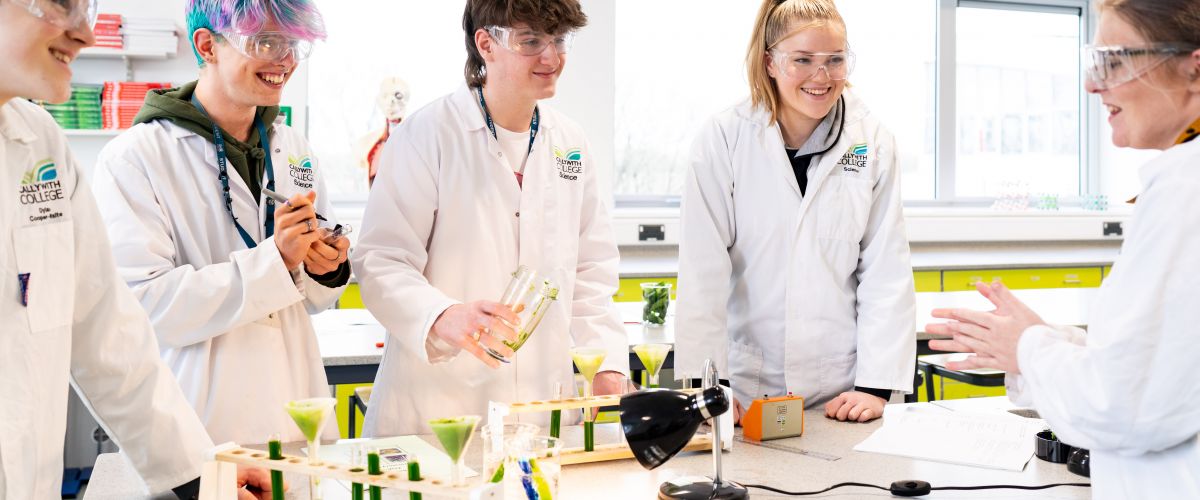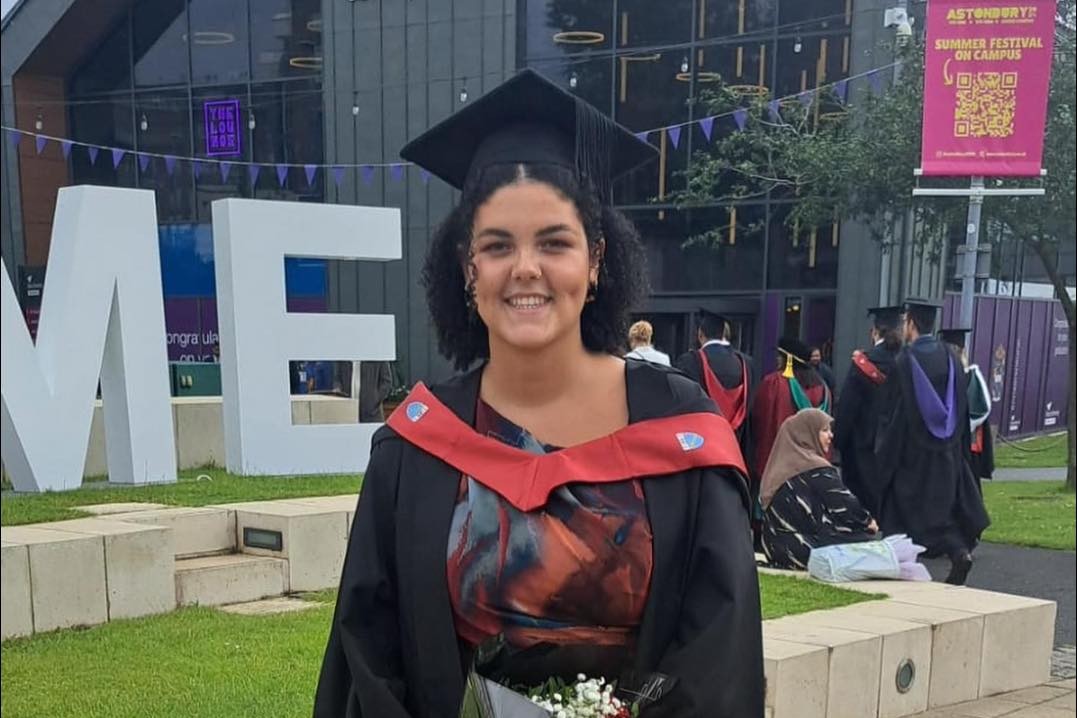A Level Biology
If you enjoy learning about life and living organisms, and want to delve deeper into concepts that you have been introduced to at GCSE, from biochemistry and cell biology through to behaviour and ecology, then A Level Biology will offer you an exciting, challenging and stimulating area of study.
Key information
Science / Full Time / A Levels and Equivalent

Why choose this course?
Biology encompasses the cellular basis of living things, the transformation of energy that underlies the activities of life, and the genetic basis for inheritance in organisms. You will study the evolutionary relationships between organisms and the diversity of life on earth, to include microorganisms, plants, animals and fungi. The structural and functional relationships studied in biology draws on the sciences of chemistry and physics for its foundations and applies the laws of these disciplines to living things.
In your first year of study, you will begin by gaining an understanding of the biological molecules which make up living things. This will enable you to understand how these molecules build up into cells, the fundamental unit of life. You will explore the ultrastructure of cells and learn the different roles of different parts of the cell, as well as how cells are organised in organisms and how they exchange substances with their environment and other cells. You will explore the need for specialised exchange surfaces and transport mechanisms in multicellular organisms including humans, fish, insects and plants. You will also learn about the fundamental role of DNA, its role in protein synthesis and how it can be used to make sense of the great diversity of life on earth.
In your second year of study you will build upon the concepts introduced in the first year to develop an understanding of the complex biochemistry of photosynthesis and respiration, and the detailed mechanisms of the nervous and endocrine systems. You will study the latest advances in genetic technologies and discover how genes are inherited and influence populations. You will also conduct your own ecological investigation during a field course.
What will I learn?
In the first year you will study the first four topics and in the second year you will study the remaining four topics and review the first year topics.
Topics:
Biological Molecules
Cells
Organisms exchange substances with their environment
Genetic information, variation and relationships between organisms
Energy transfers in and between organisms
Organisms respond to changes in their internal and external environments
Genetics, populations, evolution and ecosystems
The control of gene expression
Practical Endorsement:
You will build practical skills throughout the A Level course which will lead to a practical endorsement. You will be required to undertake 12 core practical investigations, but you will experience many more throughout the course as practical work is at the heart of biology and brings understanding to life. The practical skills developed throughout the A Level programme will be assessed by your lecturers and will be based on direct observation of your competency in a range of skills that are not assessable in written exams. Evidence to support the practical endorsement is gained over the course of the two years and is assessed on a pass or fail basis.
Assessment Arrangements
Your achievement in this subject is dependent upon excellent attendance, punctuality and effort. You will learn in a friendly atmosphere, using a variety of assessment methods:
You will be assessed through regular tests under timed conditions in class, regular homework questions and through completion of class activities. You will then be given feedback on your progress. Investigative skills and understanding are a vital part of the scientific process and you will be expected to develop your practical proficiency throughout the course as you work toward gaining the Practical Endorsement.
You will undertake a mid-point assessment at the end of your first year, with opportunities for mock examinations in class in advance of your final exams.
You will sit three formal A Level exams at the end of your two years of study. A Level grades will be based only on marks for written exams, and your practical endorsement will be assessed separately as pass or fail.
Information & Support
You will be expected to undertake at least 4-6 hours of independent study time per week. Throughout the year you will be able to access additional support through our VLE where you will find a variety of lesson resources and revision questions, as well as a variety of additional opportunities to stretch and challenge the most able students. We encourage you to proactively engage with the support available in order to reach your full potential.
What will I need?
Five GCSEs at grade 4 or above including grade 6 or above in biology or 66 combined science. Mathematics at grade 5 or above and English Language or Literature at grade 5 or above.
Where will it take me?
A Level Biology is a highly respected qualification that is valued for many degree subjects and by employers worldwide. If you aspire to study biology or a biology-related subject at university, it is recommended that you also study A Level Chemistry, as together these broaden your options. Biology opens up a wide range of opportunities for university level study, including, but not limited to, medicine, nursing, dentistry, physiotherapy, veterinary science, zoology, radiography, agriculture and horticulture, marine biology, biochemistry, genetics, dietetics, nutrition, applied biology, botany, forensic science and many other possibilities.
Additional Information
We encourage all students to read widely and conduct their own research into the topics they are studying. You will be expected to undertake at least 4-6 hours of independent study time per week. There is a wide range of support material available in the Learning Resource Centres and on the course OneNote site. Throughout the year, you will be able to access additional support and opportunities to stretch and challenge you.
Awarding Body:
AQA
To obtain more information about this course, please call: 01208 224000 or email enquiry@callywith.ac.uk




